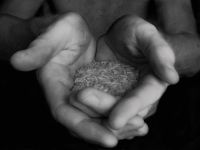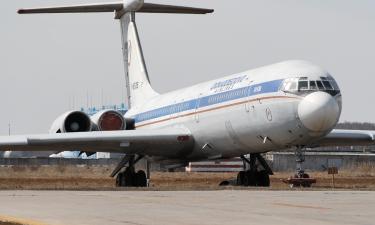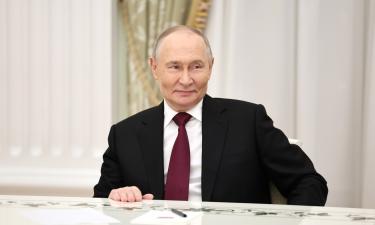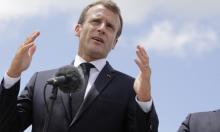Food security: Will there be enough to go round?
 With the expected growth of the world's population from 6.9 to 9.1 billion over the next four decades, and given that there are shortages in food supply already, what does the future hold? Surely it is not the means of production, but the economic system itself, more reliant upon speculative spikes, which is at fault?
With the expected growth of the world's population from 6.9 to 9.1 billion over the next four decades, and given that there are shortages in food supply already, what does the future hold? Surely it is not the means of production, but the economic system itself, more reliant upon speculative spikes, which is at fault?
With 6.9 billion people, the world today cannot feed everyone adequately. Almost one billion of these are chronically hungry, a further two billion suffer from intermittent food insecurity, six million children starve to death every year. That means 17,000 every day. In some countries, half the children are underweight.
With vast swathes of agricultural land - some of it extremely fertile - lying fallow, is this due to a lack of productive means, or is it due to the economic system the world has adopted?
The main strains on the food supply chain, and the price paid by the end consumer, are caused by a number of factors: export restrictions and manipulation of markets by applying subsidies and tariffs (although the World Trade Organization advocates a free market); the control of the markets by food brokers, who in turn buy and sell on futures markets, leaving the price of food open to the casino economy the corporatist speculative monster this market economy has rapidly turned into; oil prices; the exchange rate of the USD - all these as much as, or more than, global population growth, loss of agricultural land due to property development, destruction of crops resulting from climate change or the switch from agricultural products to biofuels, although they are all factors which have consequences.
In a system which has already surpassed the age-old rules of supply and demand, and whose throat is held in the grip of speculative greed, the supply of even basic commodities such as the food we eat, is under threat. Therefore how can we provide food security, if the vectors driving this type of boom and bust economy are allowed to apply to its production and distribution networks?
Today our wonderful globalised economy has managed to tie in the food we eat into this speculative bubble economy for gamblers, in which the price a family pays for a square meal on the dinner table has nothing whatsoever to do with the supply and demand chain, but rather with speculative pressures due to, for example, NATO's adventures, which in turn inflate the price of oil, and everything else.
The crisis of 2008, in which food prices rose sharply, occasioned food riots at a time when the financial and economic collapse of the system affected farm credits and once again, the wheel seems to have turned full circle, with higher-than-ever prices on the horizon after global food prices rise for the eighth consecutive month.
Therefore today's food markets are intrinsically linked to today's oil markets, and are intrinsically linked to other vectors forcing up prices, namely a globalised economy ruled by a World Trade Organization which preaches free trade but in practice allows the ruling elite to impose a policy of tariffs and subsidies. The victim is the small producer who cannot compete with the mega-means of production nurtured and bred by systems whose notions of free trade pass by control mechanisms and nothing else.
Worse, those who foot the bill are the world's increasing number of poor people, who have no other option but to buy from those who sell, meaning those who control the sales prices.
Under this system, it is not a question of not producing enough food to eat - it is far worse: we have created mechanisms which exclude countless and growing millions from the right to eat, to work and to live. This system does not work.
Timothy Bancroft-Hinchey
Lisa Karpova
Pravda.Ru
Subscribe to Pravda.Ru Telegram channel, Facebook, RSS!




